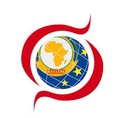African and European universities face similar challenges: the need to modernise, provide relevant curricula and offer students more opportunities to broaden their skills to increase job prospects. These issues will be among the themes addressed by Androulla Vassiliou, European Commissioner for Education, Culture, Multilingualism and Youth, at a meeting with representatives of 60 African universities in Brussels tomorrow, 27 March. The 'African Higher Education Harmonisation and Tuning' event, jointly organised by the European Commission and African Union Commission, focuses on student mobility, recognition of qualifications and credits, as well as the development of new and joint degree programmes. Over the next seven years, it is envisaged that the new Erasmus+ programme will provide grants for 25 000 African students and academics to study or train in Europe, and around 2 750 African researchers will receive support from the Marie Skłodowska-Curie Actions.
"Education is the best investment against inequality and poverty. We need to cooperate better at all levels to help higher education institutions develop relevant curricula, enable students and staff to overcome barriers to mobility and address the recognition of qualifications," said the Commissioner. "The quality and response of higher education to society's needs is central to any reform. Employers demand that universities produce graduates with modern skills and the tuning initiative helps us work towards these objectives. Plans to extend the scheme have my full support," she added.
One of the aims of this week's meeting is to double the scope of the initiative from 60 African universities and 130 000 undergraduate students to 120 universities by 2015. First launched in 2011, the 'tuning' scheme aims to enhance the relevance and quality of university courses by involving employers and other stakeholders in curricula design. It also seeks to improve institutional evaluation and to implement a framework for quality assurance and accreditation. The targets build on themes discussed at the Africa-EU Partnership Conference at Libreville, Gabon, in May 2013.
In addition to the grants available through Erasmus+ and the Marie Skłodowska-Curie Actions, EU support for the 'Nyerere' mobility programme will also facilitate exchanges within Africa to encourage student retention and increase the competitiveness and attractiveness of the institutions.
Next Steps
The next African Higher Education Harmonisation and Tuning event will take place in October 2014 inAbidjan, Ivory Coast, and focus on joint degrees - study programmes developed by two or more international universities.
Background
The European Union's development policies in Africa emphasise good cooperation, innovation and quality in higher education, mobility of students and staff, and institutional support. As part of the Joint Africa-EU Strategy, the EU contributes to the Intra-ACP Academic Mobility Scheme (for countries in Africa, theCaribbean and the Pacific) and the African Union Nyerere programme, which offers mobility scholarships for Masters degree students and doctoral candidates within Africa in key areas for social and economic development.
The EU has provided €78 million for higher education programmes supporting students and universities in sub-Saharan Africa since 2007. Over the past seven years, 4 600 African students and 980 academic staff across the continent received grants from the Erasmus Mundus programme and more than 2 000 Africans received research fellowship grants through the Marie Skłodowska-Curie Actions.
In addition to the increased opportunities available under Erasmus+, in the next four years the EU also aims to provide scholarships to around 500 students and 70 university staff within Africa under the Africa mobility programme.
The African Higher Education Harmonisation and Tuning initiative, launched in January 2011, aims to improve competences, the relevance of degree courses in relation to society's needs, and to develop comparable and compatible qualifications. To date, six workshops have taken place.
The African Union Commission promotes quality assurance and the harmonisation of higher education programmes. It aims to increase cooperation between universities, quality assurance agencies, accreditation bodies, ministries of education and national governments.
The Pan-African University plays a key role in promoting mobility and harmonising programmes and degrees. The African Quality Rating Mechanism seeks to ensure that the performance of higher education institutions can be measured against criteria agreed by universities across Africa. It contributes to the implementation of the Arusha Convention, which aims to enhance comparability, transparency and the mutual recognition of university degrees and certificates in Africa.
These measures complement the European Commission's 2013 strategy on 'European Higher Education in the world' and the EU's dialogue on higher education policies with non- member countries and regions around the world.
For more information
- African Higher Education and Harmonisation Tuning Initiative
- European Commission: European Higher Education in the World strategy
- European Commission: Education and training
- Androulla Vassiliou's website
- Follow Androulla Vassiliou on Twitter @VassiliouEU
